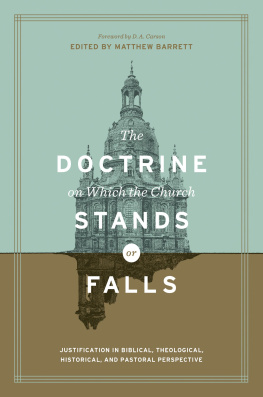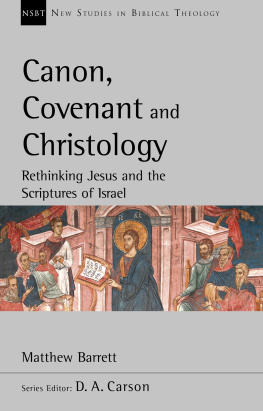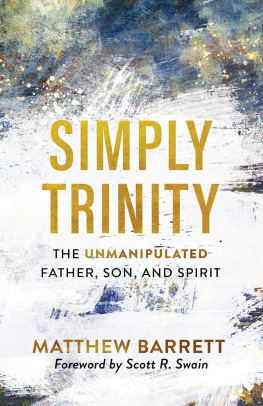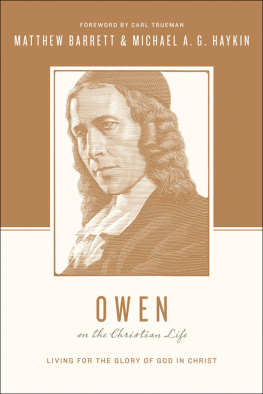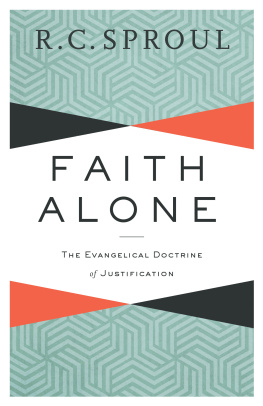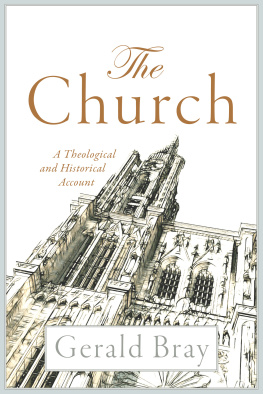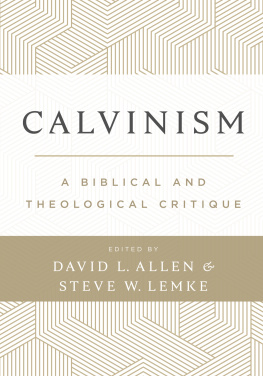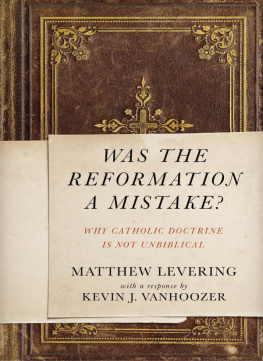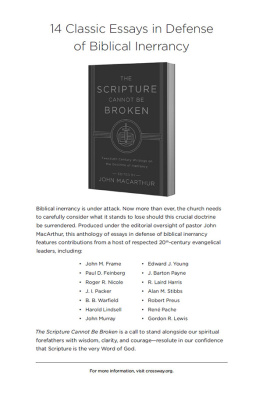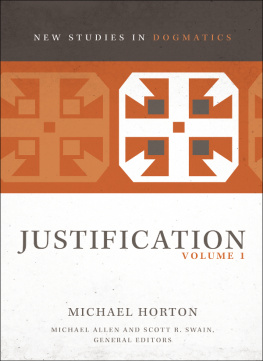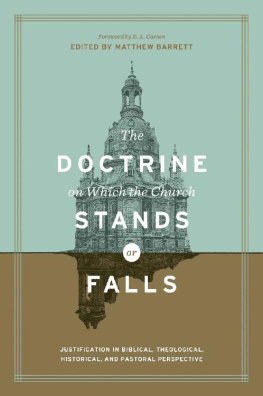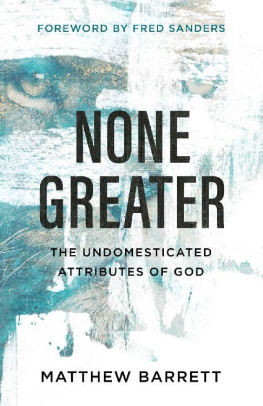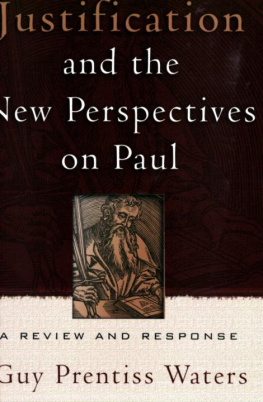Table of Contents
Landmarks
Abegg, M. G., Jr.,
abiding in Christ,
Abraham,
faith counted as righteousness,
faith of,
faith results in faithfulness,
as father of many nations,
justice of,
justification of,
justified by works,
as new Adam,
obedience of,
Pauline and Philonic interpretations of,
sacrifice of son,
suffering of,
Abrahamic covenant,
Brakel, Wilhelmus,
absolute faith (Tillich),
absolute idealism,
acorn-tree analogy,
acquittal,
bound up with passive obedience,
definition of,
resistance to,
and right to eternal life,
active righteousness (Luther),
Acts
on gospel to the Gentiles,
and Isaiah,
on obedience of Christ,
Adam
covenant with,
failure to obey,
fall of,
as federal head,
historicity of,
imputation of sin of,
sin of,
state before the fall,
adoption,
Agricola, Johannes,
Aland, Kurt,
Albrecht of Mainz,
Alexander, Archibald,
Alexander, Philip S.,
Alexander of Hales,
incompatible with Roman Catholic anthropology,
Luther on,
prefigured in Augustine,
Allen, R. Michael,
Allison, Dale C., Jr.,
Allison, Gregg,
alreadynot yet,
Alsted, Johann Heinrich,
Ambrose,
Ambrosiaster,
Ames, William,
Ammi,
Amos,
Amsdorf, Nikolaus von,
Andreae, Jacob,
Anglicanism
as catholic,
as via media ,
Anglo-Catholicism,
Anselm,
on atonement,
on imputed righteousness,
on justification,
on satisfaction,
antinomianism,
antinomian-neonomian controversy,
Augsburg Confession on,
Lloyd-Jones on,
Lutheran controversy,
Newman on,
Westminster Assembly on,
apologetic, for conversion,
Apology of the Augsburg Confession,
apostolic authority,
apostolic succession,
Aquinas. See
Arianism,
Aristotelian causality,
Aristotelian philosophy,
Aristotle,
Arminianism,
Arminius, Jacobus,
Arndt, Johann,
Arnold, Thomas,
Ashby, Stephen M.,
Asper, Hans,
assensus (assent),
assurance,
Assyria,
asyndeton,
Athanasius,
atheism,
atonement,
Attridge, Harold,
Aufklrung ,
Augsburg Confession,
Augsburg Interim,
Augustine,
against Pelagius,
on atonement,
on justification,
Auln, Gustaf,
autonomy,
Baalism,
Baal Peor,
Babylonians,
baptism, and justification,
baptismal regeneration,
Barclay, John M. G.,
Barr, James,
Barth, Karl,
Bartimaeus, healing of,
Baruch,
Bates, Matthew,
Baumgarten, Jakob,
Baur, Ferdinand Christian,
Bavinck, Herman,
Baxter, Richard,
Bayer, Oswald,
Beachy, Alvin J.,
Beatitudes,
because / therefore relationship with God,
Becker, Otto,
Belgic Confession (1561),
belief and unbelief, in Mark,
believing and obeying,
Bellarmine, Robert,
Benedict XVI, Pope,
Berkhof, Hendrikus,
Berkhof, Louis,
Bernard of Clairvaux,
bestiality,
Bethel,
Beza, Theodore,
biblical theology, and interpretation of Paul,
Biddle, John,
Biel, Gabriel,
Billerbeck, Paul,
Billings, J. Todd,
Bird, Michael,
bird trying to fly (Biel illustration),
Blazosky, Bryan,
Blenkinsopp, Joseph,
blessing,
Blocher, Henri,
boasting,
Boccaccio, Giovanni,
Bockmuehl, Markus,
Boers, Hendrikus,
Bogerman, Johannes,
Bhme, Jakob,
bondage of the will,
Book of Common Prayer (1552),
Book of Concord (1580),
Book of Consolation,
Borsch, Frederick H.,
Boston, Thomas,
both-and scheme, and Roman Catholic development of doctrine,
boundary markers,
works of the law as,
Bowden, John,
Boyd, Gregory,
Bradwardine, Thomas,
bread of life,
Brenz, Johannes,
Bridgeway Church (Oklahoma City),
broken spirit,
Brown, John, of Haddington,
Brown, John, of Wamphray,
Brunner, Emil,
Bryan, Steven M.,
Bucer, Martin,
Buchanan, James,
Buck, Pearl S.,
Buddeus, Johannes Franciscus,
Buddhism,
Bullinger, Heinrich,
Bultmann, Rudolf,
Bunyan, John,
Burgess, Anthony,
Butler, Joseph,
Calvin, John,
on atonement,
definition of faith,
definition of justification,
on duplex gratia ,
on good works,
on the heart,
on the Holy Spirit,
incarnational analogy of,
on inseparability of justification and sanctification,
on James,
on justification,
on justification as main hinge,
on obedience of Christ,
on Osiander,
on resurrection of Christ,
on suffering of Christ,
as theologian of the Holy Spirit,
on Theophylact,
on two-Adam typology,
on twofold meaning of justification,
on union with Christ,
and Vermigli,
and via moderna ,
Calvin vs. the Calvinists,
Campbell, Constantine R.,
Campbell, Douglas A.,
Campeggio,
Canaanites,
capax Dei ,
Capito, Wolfgang,
Carnesecchi, Pietro,
Carranza, Bartolome,
Carson, D. A.,
Caryl, Joseph,
Catechism of the Catholic Church (1992),
causes of justification,
Celsus,
certainty of faith,
chain of salvation,
Charles V, Emperor,
Chaucer, Geoffrey,
cheap grace,
Chemnitz, Martin,
children of the living God,
children of whoredom,
Childs, Brevard,
Chillingworth, William,
Christ. See Jesus Christ
Christ-church interconnection, in Roman Catholicism,
Christian initiation, Newman on,
Christian liberty,
Christian life
faith and works in,
and Mosaic law,
Christian righteousness,
Christians, real and nominal,
Christology, and justification,
Christus Victor ,
Chrysostom, John,
Chubb, Thomas,
church
as continuous incarnation,
dignity of,
as organ of authority and revelation,
unity of,
universality of,
church fathers
on atonement,
on justification,
Churchs One Foundation, The (hymn),
Chytraeus, David,
circumcision,
as covenant sign,
as Jewish identity marker,
circumcision of the heart,
Circumcision of the Lord (Biel sermon),
City of God,
civil righteousness,
Clark, R. Scott,
classical realist epistemology,
cleansing from sin,
Clement of Alexandria,
Clement of Rome,
Clines, David,
clothing imagery for righteousness (Augustine),
Cochlaeus, Johannes,
College of New Jersey,
Colloquy of Regensburg (1541),
Colloquy of Worms,
Colossians, justification in,
common notions,
compassionate justice,
concupiscence,
condemnation,
conditional grace,
confidence before God,
Confutation of the Augsburg Confession,
conscience,
consciousness of God, Tillich on,
constitutive justification (Baxter),
Contarini, Giulio,
contrition,
conversion,
to and from Roman Catholicism,
Schleiermacher on,
convicted of righteousness,
Cooper, John W.,
coram Deo ,
Corban,
corporate exile position (works of the law),
corporate unity with Christ (Powers),
Council of Carthage (397),
Council of Constantinople (553),
Council of Ephesus (431),
Council of Milevis,
Council of Orange (529),
on alleged errors of Reformers,

